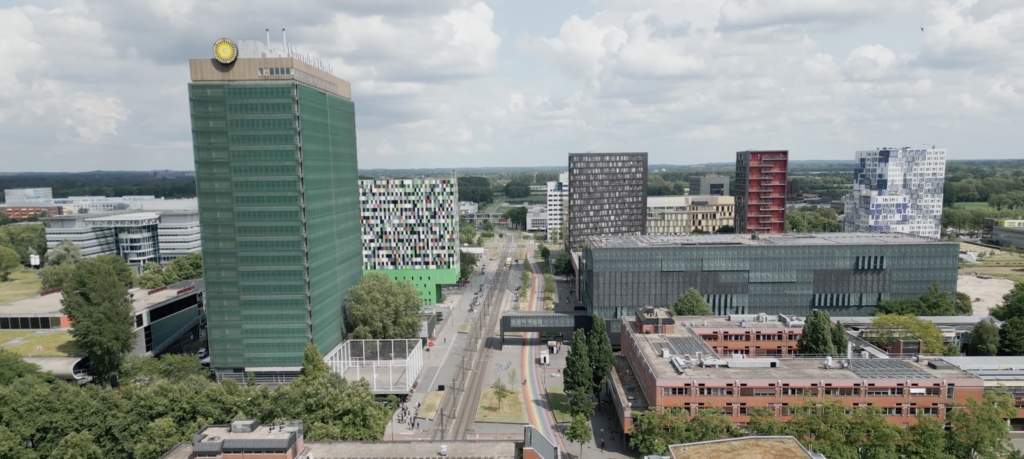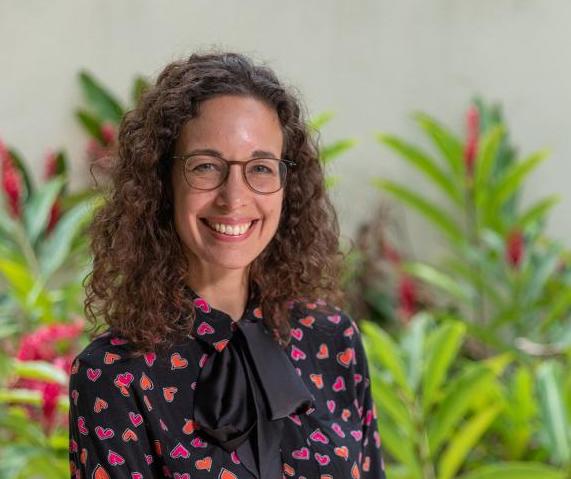
The CHI NL Community Event 2024 will take place at Utrecht University on Friday April 12 2024.
Intro
CHI NL will bring together the local HCI community again in 2024. This year, we gather at Utrecht University, where we will host keynotes and paper presentations and provide the possibility to gather feedback on work that did not make the cut. Of course, there will also be room for networking and social activities on a smaller and cosier scale than at the CHI conference. We are still working on finalising the program – an update on this will follow shortly. We hope to see all our fellow HCI researchers from around the Netherlands for this nice gathering. This event is supported by ACM SIGCHI.
Call for submissions
Many researchers will have submitted papers to the ACM CHI Conference on Human Factors in Computing Systems or other SIGCHI conferences. We call for both accepted and rejected submissions for CHI and other SIGCHI conferences. We will host sessions where authors can practice their presentation or get feedback on their work for a resubmission. Further, we invite HCI research groups to submit a poster introducing their group and their activities to the CHI NL community day. These posters allow the participants of the event to find colleagues with similar research interests as themselves, even if they cannot attend. The deadline for submitting your work is the 29th of March.
Program
| 09:30-10:00 | Arrival – Meet and Greet |
| 10:00- 10:30 | Opening + CHI.NL Introduction chaired by Michel Wijkstra |
| 10:30-11:00 | Keynote I – Martijn Willemsen chaired by Hanna Hauptmann |
| 11:00-12:00 | Session I chaired by Jeroen Ooge |
| 11:00- 11:15 | Sara Salimzadeh: Dealing with Uncertainty: Understanding the Impact of Prognostic Versus Diagnostic Tasks on Trust and Reliance in Human-AI Decision Making |
| 11:15 – 11:30 | Lorenzo Corti: “It Is a Moving Process”: Understanding the Evolution of Explainability Needs of Clinicians in Pulmonary Medicine |
| 11:30- 11:45 | Mireia Yurrita Semperena: Personalize, Prioritize, Collectivize: Identifying Algorithmic Decision Subjects’ Needs for Meaningful Contestability |
| 11:45- 12:00 | Gizem Oktay: “Times are Meshing”: Temporalities of more-than-human care in human-dog relations |
| 12:00-13:00 | Lunch |
| 13:00- 13:30 | Keynote II – Vanessa Evers chaired by Julian Frommel |
| 13:30- 14:45 | Session II chaired by Simone Ooms |
| 13:30- 13:45 | Benny Markovitch: Tunnel Runner: a Proof-of-principle for the Feasibility and Benefits of Facilitating Players’ |
| 13:45- 14:00 | Maarten Gerritse: The Effect of Spatial Audio on Curvature Gains in VR Redirected Walking |
| 14:00-14:15 | Karthikeya Puttur Venkatraj: ShareYourReality: Investigating Haptic Feedback and Agency in Virtual Avatar Co-embodiment |
| 14:15- 14:30 | Willemijn Elkhuizen: On the Role of Materials Experience for Novel Interactions with Digital Representations of Historical Pop-up and Movable Books |
| 14:30- 14:45 | Julian Frommel: Toxicity in Online Games: The Prevalence and Efficacy of Coping Strategies |
| 14:45- 15:15 | Coffee Break with Interactive Tables |
| 15:15- 16:15 | Session III chaired by Marit Bentvelzen |
| 15:15- 15:30 | Esra de Groot: “Are we all in the same boat?” Customizable and Evolving Avatars to Improve Worker Engagement and Foster a Sense of Community in Online Crowd Work |
| 15:30-15:45 | Yvon Ruitenburg: Evolving Presentation of Self: The Influence of Dementia Communication Challenges on Everyday Interactions |
| 15:45- 16:00 | Roelof de Vries: Blueprints: Systematizing Behavior Change Designs—The Case of Social Comparison Theory |
| 16:00- 16:15 | Chris Janssen: An Eye Gaze Heatmap Analysis of Uncertainty Head-Up Display Designs for Conditional Automated Driving |
| 16:15- 17:00 | Social Activity + Closing chaired by Anouk van Kasteren and Marloes Vredenborg |
| 17:00-18:00 | Networking Borrel |
Keynote speakers
Prof. Dr. Vanessa Evers (University of Twente)

Title: Designing socially intelligent technology
Abstract: In futurist research, we envision new robotic possibilities and think through the consequences of these (im)possible innovations for people and their impact on society. In imagining this future and developing Social AI and Social robotics solutions, we have been imagining what future robotic services may look like, and study the social and societal consequences. In this presentation I will discuss projects in which we created social robot technology; explain how we went about designing integrated AI driven robots that were envisioned to operate in everyday environments and how we studied the impact of these controversial technologies on people’s lives. Also, there will be a lot of interesting videos to watch as we learned to make robots for people through trial and error.
Bio: Vanessa Evers is a full professor and Chair of Human Media Interaction at the computer science department of the University of Twente in the Netherlands. She is also founder and scientific director of the DesignLab at the University of Twente. Vanessa Evers is a visiting professor of Computer Science at Nanyang technological University in Singapore and was the founding Director of the Institute for Science and Technology for Humanity (2019-2022). She received an M.SC. in Information Systems from the University of Amsterdam, and a Ph. D. in Educational Technology from the Open University, UK. During her Master studies, she spent two years at the Institute of Management Information Studies of the University of New South Wales, Sydney. After her Ph.D. she has worked for the Boston Consulting Group, London and later became an assistant professor at the University of Amsterdam’s Institute of Informatics. She was a visiting researcher at Stanford University (2005- 2007). She is organiser of conferences such as ACM SIGCHI, ACM/IEEE HRI, ICSR, CABS, IWIPS, CSCW, she served on Program Committees of ACM/IEEE HRI, ACM SIGCHI, HSI, ACM CSCW and ACM Multimedia. Vanessa functions as (associate) editor for journals such as the International Journal of Social Robotics, transactions on Human Robot Interaction and the newly formed international jounal on smart and sustainable cities. She has presented her work internationally at high profile events such as the World Economic Forum in Davos (2016), the European Heads of State Digital Summit in Tallinn (2017) and the ASEAN leadership conference.
Dr. Martijn Willemsen (Eindhoven University of Technology)

Title: Better understand why your recommender system/AI works or not: the benefits of quantitative user-centric evaluation.
Bio: Martijn Willemsen (http://www.martijnwillemsen.nl/) is an Associate Professor on human decision making in interactive systems in the Human-Technology Interaction group at Eindhoven University of Technology (TU/e) and at the Jheronimus Academy of Data Science in Den Bosch (JADS), in The Netherlands. He researches the cognitive aspects of Human-Technology Interaction, with a strong focus on judgment and decision making in online environments. His research focuses on how (online) decisions can be supported by recommender systems, and includes domains such as movies, music, health-related decisions (food, lifestyle, exercise) and energy-saving measures. Together with Bart Knijnenburg, he developed a user-centric evaluation framework for recommender systems. His recent focus is on interactive recommender systems that help users to move forward, developing new preferences and/or healthier behavior, rather than reinforcing their current behaviors. Such systems can provide personalized behavioral change. Martijn also focusses on interactive and explainable AI, with recent work evaluating XAI tools and how sport coaches interacting with prediction models.
Practical information
The CHI NL Community Event will be held in room 042 of the Marinus Ruppert building on the Utrecht Science Park.
This event is free for everyone to attend. Please register below to alert us of your attendance. Registration closes on April 4th
Student travel funding
We have travel funding available for students. As funding is limited, we will make a selection that benefits the diversity of the event. The deadline for submitting a travel request is the 29th of March. We will notify those who have an accepted funding requests on April 3rd.
Accessibility
For any questions regarding accessibility, please refer to the accessibility guidelines of the Ruppert building: https://www.uu.nl/en/marinus-ruppert-building. For any other questions, our accessibility chair Jeroen Ooge can be reached at j.ooge@uu.nl
The CHI NL Community Day is supported by ACM SIGCHI.

